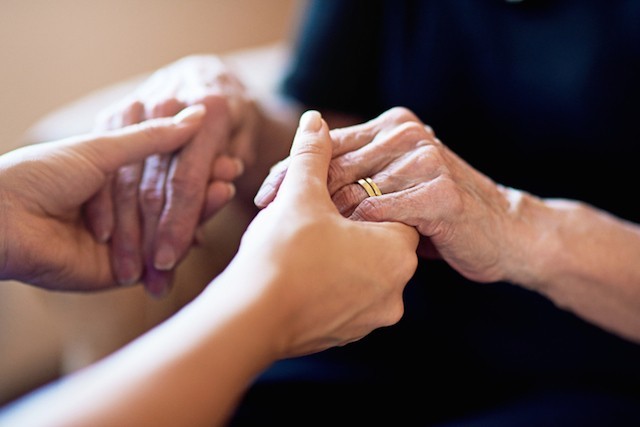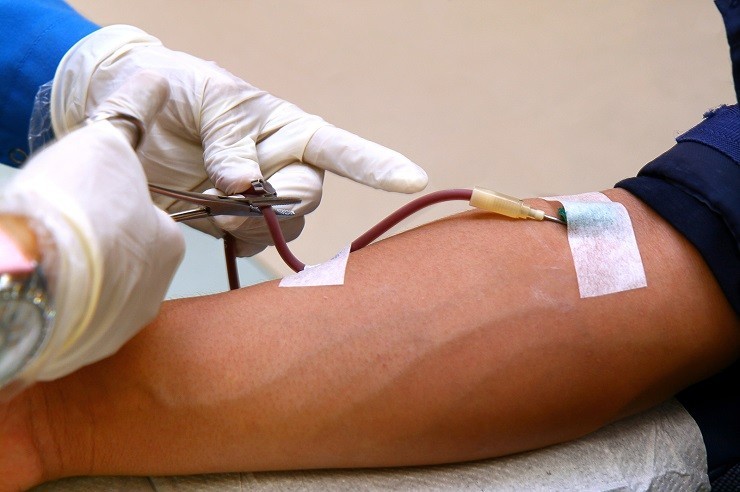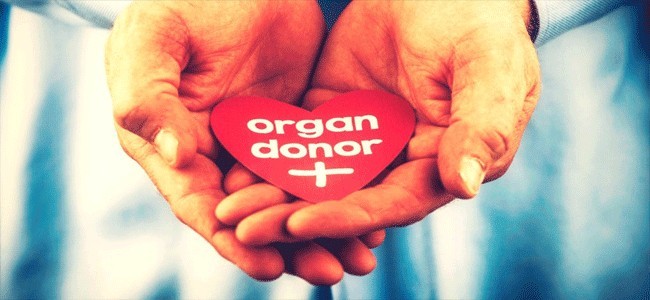
Several issues exist here. Jesus tells us “Greater love has no man than this, that a man lay down his life for his friends” (St. John 15:13). What greater love can we express than donating an organ that we have no more use for in order to save a life? We are literally saving someone from death.
But a different approach looks at what the Apostle Paul says: “Do you not know that you are God’s temple, and that God’s Holy Spirit dwells in you? If anyone destroys God’s temple, God will destroy him. For God’s temple is holy and that temple you are” (1 Corinthians 3:16-17).
Is it right, then, to cut up this temple and remove parts of it even if it means bettering or saving a life? What organs, if any, really matter; the heart, the lungs, the brain? Can’t God resurrect our body if we donate parts of it to save others? Is dying “God’s will”? If I have a terminal illness, why should I want a transplant? Shouldn’t I allow myself to die naturally?
In the United States there are currently more than 116,000 people on the national transplant waiting list. And while an average of 75 people receive a transplant each day, another 20 people die each day waiting for transplants due to a shortage of donations. During the time it takes to read this article, another name will be added to the waiting list – something that happens every 11 minutes, according to the U.S. Department of Health and Human Services.

These are difficult questions that have divided even the “expert” Church theologians. Some seem to favor the “lay down one’s life” idea. They feel that if a life can be saved, why not save it. After all, it was not God’s will that man should die. We should fight death until our last breath. Besides, God can resurrect us with or without all of our organs (Ezek. 37:1-14). Even though the body was the “temple of the Holy Spirit” during life, removing the organs after or just before death is not a defilement but a type of offering of ourselves to others in need.
On the other hand, you have some who feel that the body should not be defiled either before or after death. It is still sacred even when our life is over simply because it was the temple of the Holy Spirit. Because of this, it should remain whole with all of its parts untouched unless they were destroyed by disease or the result of an accident. They view at the removal of organs as a violation of the body, the former temple.
You also find some whose views fall somewhat in the middle. They feel that “minor things” like corneas or bone narrow are not a problem. They also believe that major organs like the heart should not be removed. They view at the biblical references to the heart as well as its medical function of keeping the body alive. The same might be said for the lungs that give us breath and sustain our life. How do you determine what is and is not acceptable, since even the theologians are divided?
We need to ask ourselves how we feel about this issue. Which of these views best reflects our own feelings and beliefs? We need to talk to our Spiritual Father about it as well. Even though the views differ, there are some points upon which they all agree:
– No one should be forced by anyone else to donate his or her organs. We must make sure that the person whose organs are taken made it clear that he wanted his organs donated. A gift is to be given freely at the will of the one giving it, not taken from him. If it is taken, it is not a true gift.
– Someone whose life will be put in danger by the donation should not make donations.
– Likewise, organ donations should not be made to the point of the suicide of the donor. In other words, this means
no vital organs from a living donor, which, if removed, could cause their death.
– It is also wrong to hasten or cause the death of a donor.
– Finally, the Church does not condemn those who choose not to be donors.

These are just a few of the moral and ethical questions you will have to face in your lifetime. There will be many, many more than our knowledge and technology increases. When faced with a moral dilemma, do some research. Ask yourself the key questions you learned, talk with Father in Heaven by praying about it. Ask God to help you make the right decision.
Blood Transfusions
Some very valid points are brought up when these questions come up. The Bible doesn’t say anything about blood transfusions either, and Scripture tell us not to EAT blood (Genesis 9:4, Leviticus 7:26; 17:12-14; 19:26); and getting transfusions doesn’t equate to “eating” the blood.
The gist is that we are not to make a ritual of it like the pagans do. Does that mean we cannot put the same “type” of blood into a brother to save his life if his own is poisoned or draining out? That’s a great question…. God gave us brains and knowledge to save lives; and doctors have figured out that blood transfusions are one possible way to do that.
Actually, the only instruction we can see in the Bible concerning blood is that it must be poured out onto earth, which is in reference to dead creatures. In other words, we are not to be using the blood/life from a dead creature because when a creature is finished “using” its life, its life is to be returned to it’s Creator (Ecclesiastes 12:7), because it belongs to God who is the giver of life (Psalms 24:1, Isaiah 42:5, 1 Corinthians 10:26).
God forbade the eating of blood (Leviticus 7:26-27, Leviticus 17:10, 12-14, Acts 15:29), but in all cases it is in regard to the blood from animals, not from humans. In any case, we don’t sacrifice humans, and we don’t consume human flesh, and we don’t “drink” human blood” when we receive a transfusion.
We know that the 10 plagues in the Exodus were because the plagues represented Egyptian “gods”. Scripture itself does not say this, but we can know this by understanding what scripture says and comparing it to our knowledge of Egyptian culture in the era. In the same way, the command not to “eat blood” as we know, is because we are to show respect for life and not do as the pagans did which showed no respect for life.
In Leviticus 17:13-16 we find this: 13″When someone from the community of Israel or one of the foreigners living with you hunts and catches game, whether animal or bird that may be eaten, he is to pour out its blood and cover it with earth. 14 For the life of every creature – its blood is its life. Therefore, I said to the people of Israel, ‘You are not to eat the blood of any creature, because the life of every creature is its blood. Whoever eats it will be cut off.( 15 “Anyone eating an animal that dies naturally or is torn to death by wild animals, whether he is a citizen or a foreigner, is to wash his clothes and bathe himself in water; he will be unclean until evening; then he will be clean. 16 But if he doesn’t wash them or bathe his body, he will bear the consequences of his wrongdoing.”
Note that in verse 13-14 we find the rule for preparing game. Kill it, drain it, eat it. But in verse 15 we find that if an animal is found already dead, you can eat it, but you are “unclean.” Is that because you “ate blood”? No! It is because you touched a corpse! See Leviticus 11:39-40, which says: 39 “‘If an animal of a kind that you are permitted to eat dies, whoever touches its carcass will be unclean until evening. 40 A person who eats meat from its carcass or carries its carcass is to wash his clothes; he will be unclean until evening.” It is the fact that the (edible) animal died, and no one could show respect for it by properly draining its “life”; and so even though you may eat the animal which died naturally, you are unclean as a result.

Let’s go back to the first place we learn of the “blood” issue. It’s in Genesis 9: 2 The fear and dread of you will be upon every wild animal, every bird in the air, every creature populating the ground, and all the fish in the sea; they have been handed over to you. 3 Every moving thing that lives will be food for you; just as I gave you green plants before, so now I give you everything – 4 only flesh with its life, which is its blood, you are not to eat. 5 I will certainly demand an accounting for the blood of your lives: I will demand it from every animal and from every human being. I will demand from every human being an accounting for the life of his fellow human being. 6 Whoever sheds human blood, by a human being will his own blood be shed; for God made human beings in his image.
Why could this be so important to God that we are permitted to eat the meat, but not the blood, even though we know that properly drained, there is STILL blood in meat that we eat? Well, I believe the answer is found here:
(Deuteronomy 12:20) “When the Lord your God expands your territory, as he has promised you, and you say, ‘I want to eat meat,( simply because you want to eat meat, then you may eat meat, as much as you want. (21)If the place that the Lord your God chooses to place his name is too far away from you; then you are to slaughter animals from your cattle or sheep, which the Lord has given you; and eat on your own property, as much as you want. (22) Eat it as you would gazelle or deer; the unclean and clean alike may eat it.
(23) Just take care not to eat the blood, for the blood is the life, and you are not to eat the life with the meat. (24) Don’t eat it, but pour it out on the ground like water. (25) Do not eat it, so that things will go well with you and with your children after you, as you do what the Lord sees as right. (26) Only the things set aside for God which you have, and the vows you have vowed to make, you must take and go to the place which the Lord will choose. (27) There you will offer your burnt offerings, the meat and the blood, on the altar of the Lord your God. The blood of your sacrifices is to be poured out on the altar of the Lord your God, but the flesh you may eat. (28) Obey and pay attention to everything I am ordering you to do, so that things will go well with you and with your descendants after you forever, as you do what the Lord sees as good and right.
(29) “When the Lord your God has cut off ahead of you the nations you are entering in order to dispossess, and when you have dispossessed them and are living in their land; (30) be careful, after they have been destroyed ahead of you, not to be trapped into following them; so that you inquire after their gods and ask, ‘How did these nations serve their gods? I want to do the same.(31) “You must not do this to the Lord your God! For they have done to their gods all the abominations that the Lord hates! They even burn up their sons and daughters in the fire for their gods! (32) “Everything I am commanding you, you are to take care to do. Do not add to it or subtract from it.
Read verse 28, then read from verse 30. Verse 30 says “be careful, after they have been destroyed ahead of you, not to be trapped into following them; so that you inquire after their gods and ask, ‘How did these nations serve their gods? I want to do the same.( You must not do this to the Lord your God! For they have done to their gods all the abominations that the Lord hates! ” – these verses indicate how these the “nations” served their “gods”, i.e., the pagans drank the blood!

So what have we learned?
We have learned that the prohibition of drinking blood is for drinking blood of slain (edible) animals only. We are to drain that blood to the earth. Drinking blood, as the pagans did, is an abomination to God, and we are to take care not to do that. We are to show respect for the life in the animal we eat and drain its blood onto the earth.
So are transfusions OK? Most certainly they are! First, no human was slain to get the blood. Second, no blood was “consumed” in any pagan ritual which is an abomination to God. Third, according to (Genesis 9:5), we will be required to present an accounting for the life of our fellow human being. If a transfusion can save lives, then it should not be denied, and it is not against the will of God.
Final Thoughts
When the Torah was recorded by Moses, electricity was not known either, yet today, since God has allowed us to use the brains He gave us, electricity is used in all sorts of positive ways – and negative ways. Don’t be overwhelmed by medical advances! They are in no way “playing God”! He permits these advances for are good and sometimes for our bad.
Generally, in the case of donating organs after death, the gifts that God has given to us to use in this life– our eyes, hearts, liver, and so on– can be passed on to someone in need. In the case of donating organs while alive, such as giving a healthy kidney to a relative in need, the donor needs to weigh all the implications; in charity, a potential donor may decide he cannot offer an organ, such as if he were a parent and would not want to increase the risk of not being able to care for his own dependent children. Although organ donation is not mandatory, it is commendable as an act of charity.
But, you are correct to be wary of medical procedures “just because we can.” For example, today, we can keep “the body” alive at will! We know enough to keep “the body” alive, perhaps forever, by mechanically circulating oxygenated blood and nutrients to the brain and organs, but is that “life”? It is only when medical technology extends its value that it becomes a problem. I hope this is clear and helpful for you to make a biblical decision about organ donation or blood transfusion.
God Bless,
MyBibleQuestions
